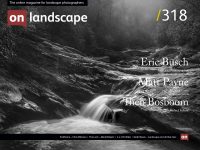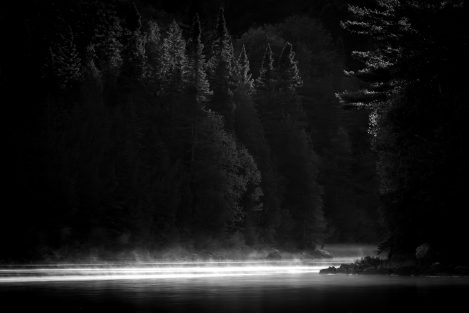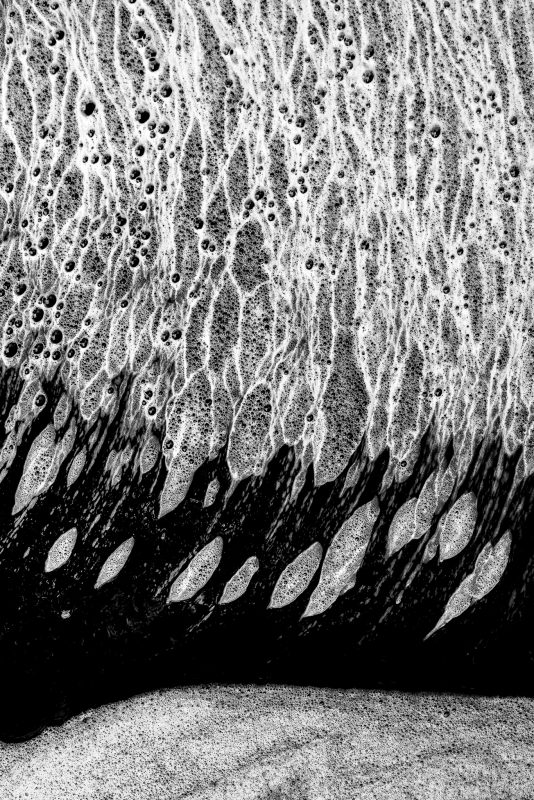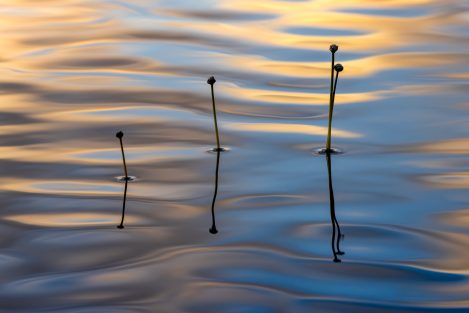Featured Photographer

Eric Busch
My photography is heavily influenced by the concept of absence and emptiness found in classical Chinese landscape poetry and painting. Photographing the interplay of form and space fascinates me. I live a quiet life with my wife on Georgian Bay in Ontario, Canada.

Michéla Griffith
In 2012 I paused by my local river and everything changed. I’ve moved away from what many expect photographs to be: my images deconstruct the literal and reimagine the subjective, reflecting the curiosity that water has inspired in my practice. Water has been my conduit: it has sharpened my vision, given me permission to experiment and continues to introduce me to new ways of seeing.
In this issue, our featured photographer is Eric Busch, who lives in Canada. Our conversation with Eric takes us from skateboarding in North America to South Korea and a fascination with traditional Chinese painting and poetry. The latter has fed into Eric’s photography: minimalism, mystery, and absence, and continues to influence him.
Would you like to start by telling readers a little about yourself – where you grew up, what your early interests were, and what you went on to do?
I grew up in St. Louis, Missouri, where I spent my time skateboarding, racing mountain bikes, backpacking, fishing and practising photography. After completing a degree in marketing, I knew that career path wasn’t for me, so I moved to South Korea to teach English. I spent the better part of the 2000s teaching, photographing and rock climbing there. It was there that I met my Canadian wife. It was also where I taught myself web design and programming. Shortly after moving back to Canada, I started a software business with my Belgian business partner. We ran that business for 14 years and sold it in 2022. I’m currently head of product and strategy at the software company which purchased our business.
You’ve a photo that shows your first camera and lenses on your website; it looks well used. What sparked your interest in photography, and where did you take your kit in those early years?
Skateboarding first sparked my interest in photography. By the time I hit my teens, I had traded my baseball glove for a skateboard and spent much of the late 80s building ramps and skating. My bedroom walls were covered with photos ripped from skate magazines… super wide-angle shots where the photographer was inches away from getting a slab of wood stuck into their lens (or worse).
Those images inspired me to learn how to use my dad’s 35mm camera, twist on his fisheye lens and lie underneath the skate ramp to shoot my friends as they launched themselves over me. The images were so much fun to make, print and share.
At some point in high school, I received my own 35mm camera as a gift (the one pictured on my website) and a couple of lenses. I loved it! I primarily shot colour slide film such as FujiChrome Velvia 50 or Kodachrome 64.
I took that camera everywhere: state parks in Missouri, mountain bike races, backpacking in the US Southwest, hitchhiking from Canada to Mexico, travelling throughout Asia and exploring the rural and urban areas of Korea.
But photography lost its appeal to me when I added a D to my SLR. No longer did my images have that magic look which film provided. Instead, the images were dull and lifeless. I didn’t know how to post-process and didn’t try to learn. If adding more contrast and saturation in Photoshop didn’t “fix” the image, I discarded it. Over the next few years, I shot less and less.
Fast forward to 2021, one of my relatives mentioned they knew an amateur photographer. I thought to myself ‘Why am I not an amateur photographer?’ (whatever that means). Since I already owned a DSLR, knew the exposure triangle and had a day job, I wasn’t too far away from being an amateur photographer. I spent the next few weeks watching hours of post-processing videos.
Once I was able to process an image to match the vision I had while shooting, editing became an extension of the creative process, not an afterthought or chore. Editing reignited my love of photography in a way I did not expect!
I even scanned old slides and negatives from decades prior and edited those images in Lightroom to finally create the images I had seen in my mind when I snapped the shutter so many years before.




